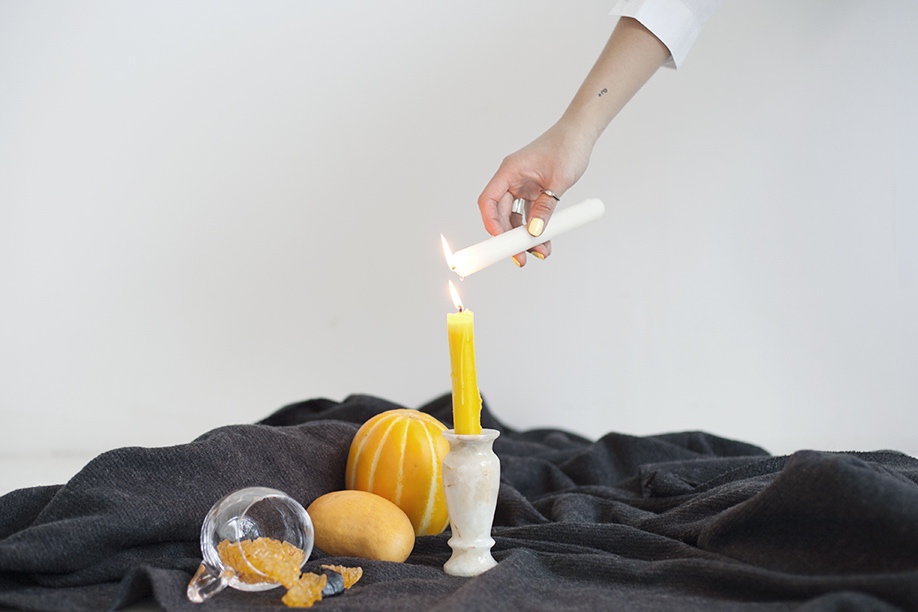By Kristi Alexandra
@kristialexandra
What happens after we die?
It’s the question many spiritual practices are founded on, and a quandary religion does its best to answer. But how do we approach the question “What happens after we die?” when it comes to practical and modern applications?
Entrepreneurs Katherine Chan and Romila Barryman are doing it in a way that spiritualists and lawmakers alike haven’t yet considered. Their digital death start-up, jiwa, aims to demystify what happens to us—online, that is—when our bodies are six-feet-under.
The conversation between the two co-founders started when Barryman experienced a string of deaths that gave her little closure.
“There was this strange realm in which everything still lived digitally. One person who passed away, their parents announced it on his Facebook page, through his accounts, because I guess he was still logged into them. There’s some value in being far away and being able to access grief through the digital realm, but there’s also this ethical question,” Barryman tells Loose Lips.
“We took that question, and we went into our personal circles and we started asking people if they had been experiencing this strange intersection of death and technology, and ‘How has that hindered or helped you?’ No two answers looked the same.”
The ethics were especially troubling to Chan, who also has a background in narrative therapy.
“Everyone has a different way to grieve or not grieve,” Chan offers.
Considering about 30 million Facebook accounts are owned by deceased people, active social media users are unknowingly visiting a veritable digital graveyard everyday.
“My problem with this Facebook or other social media takeover pattern is the question of authorship. Who is using your account to post something on your behalf — even when it comes to your death? Someone is using your account to announce it. It’s just a bit strange to me that when someone dies, for some reason, you’re allowed to look through their journal. It’s almost like the privacy is completely gone when you’re gone. That’s the piece that we held onto, and looked at from a techonological perspective, from a journalistic perspective and a mental health perspective.”
To some relief, there’s a little groundwork being done, but you may not know too much about it.
Facebook has implemented a legacy feature—in which a friend or family member can inherit your account when you die—to deter from the site becoming a complete graveyard, and other companies are beginning to follow suit.
As Chan and Barryman explain it: “Quite easily, without the legal matters involved, if you were appointed somebody’s legacy account holder, you can choose to close [the profile] down or memorialize it.”
YouTube and Google both have deceased user policies, whereas Twitter does not. Nor, in case you were wondering, does PornHub.

So where does jiwa come in?
“If somebody decided that they want their digital self to die when they die, it would be so easy for us to provide a service where we could shut everything down,” Barryman explains.
The community-focused tech start-up offers one-on-one consultations where you decide how you want your digital assets handled after you die, along with digital legacy plans, aftermath assistance and social media audits.
“There are these [legacy] features that exist, so obviously companies are seeing what’s happening,” Chan explains, “but a lot of people don’t know about them, and that makes me think about why.”
“This is about all your records: what you’ve posted, what you’ve written about yourself, your interactions with other people, and I can’t help but think there is some kind of avoidance in talking about this.”
That’s why, Chan says, people don’t know about deceased user policies, even when they might be thinking about their online afterlife.
“We knew that it wasn’t just a technical issue, that this was a cultural issue that we had to address. It’s this taboo that we have with death that’s creating isolation and creating adverse effects on folks, especially young folks,” Barryman says.
At the end of life, things to consider are taxes, death certificates and what to do with the body. All of very burdening things. But what of our online assets?
According to the ladies of jiwa, in their research, they found some law firms don’t even consider social media accounts an asset.
“For millenials, somewhere between never owning a house and being online, we’ve discovered that our social media presence is the only asset we have,” Chan counters, noting that consent is an issue surrounding both death and social media.
“The philosophy behind jiwa is very much about that. It’s about saying what you want to do with what you have, instead of having someone else decide what to do with it when you can’t be around for that,” Barryman agrees.
At its core, jiwa helps its community review and understand their digital authorship, along with providing membership-based perks such as access to exclusive services.
“We’re coming at it with an approach that is consent-based. Do you want to die digitally? Or do you want something to carry on?”
It’s a question about our own mortality that we just might get to answer while living.
To learn more, visit Discoverjiwa.com or follow them on social media at @discoverjiwa.
Note: jiwa’s next event takes place on Valentine’s Day (Feb. 14), and is an invitation to speak on love and loss. The intention is to open up a dialogue around heartbreak in a digital era, the culture of ghosting and interrupted endings. More details will be released on jiwa’s social media.

Kristi Alexandra is an unabashed wino and wannabe musician. Her talents include drinking an entire bottle of cabernet sauvignon, singing in the bathtub, and falling asleep.




